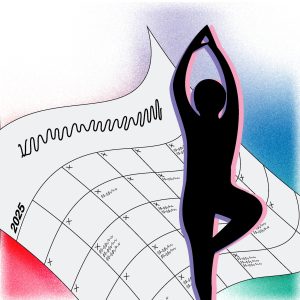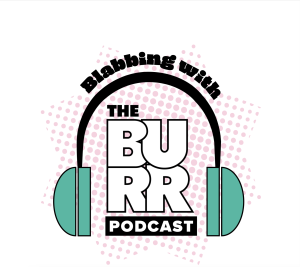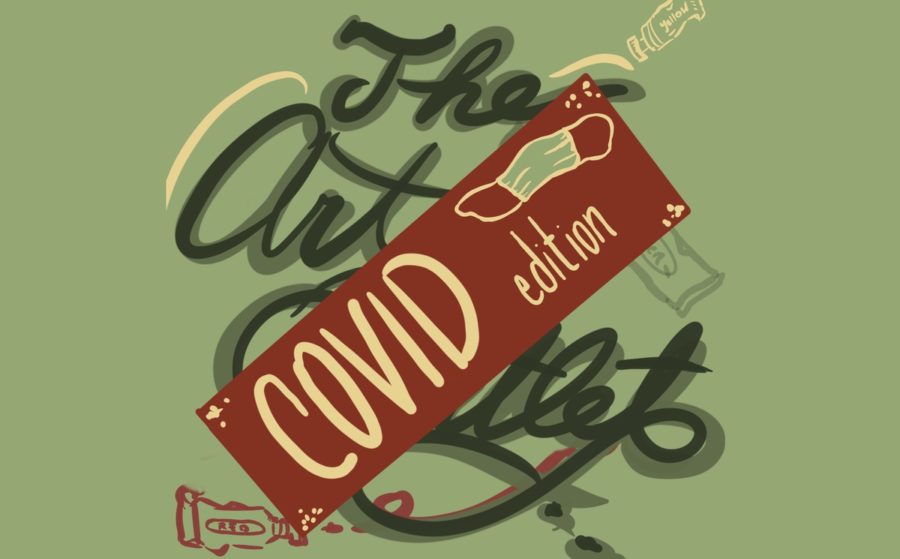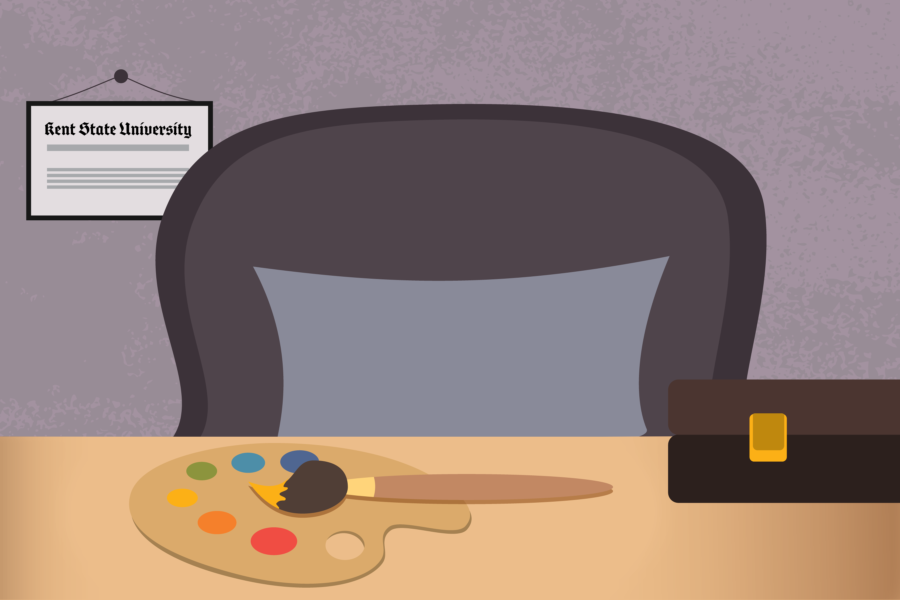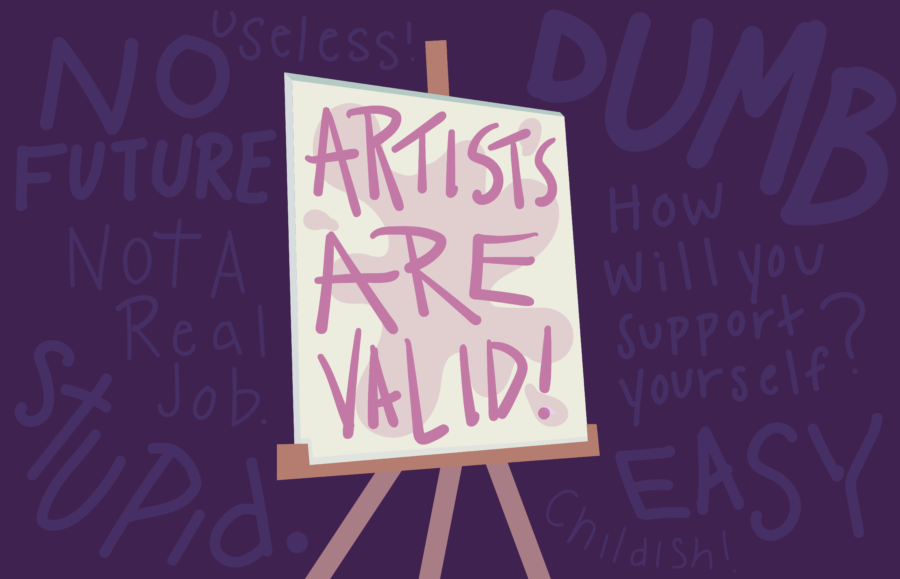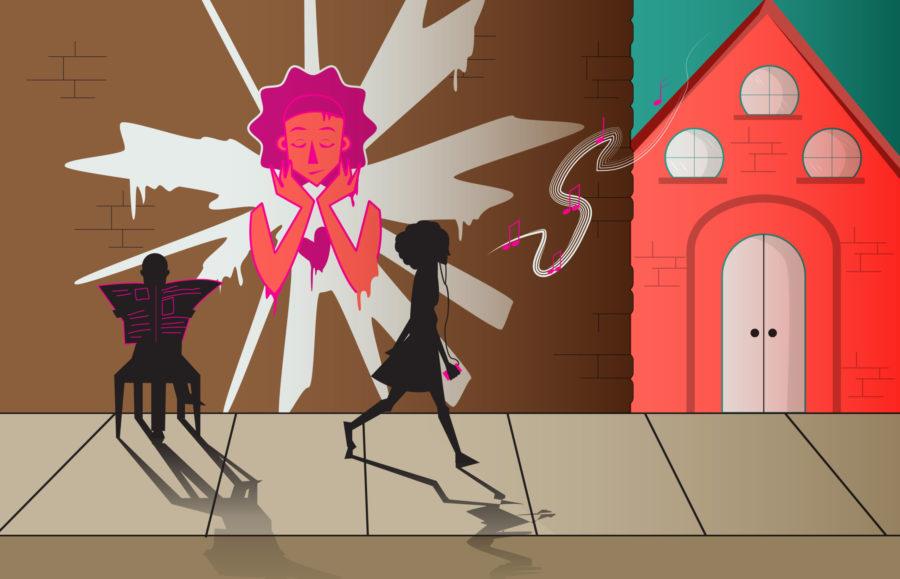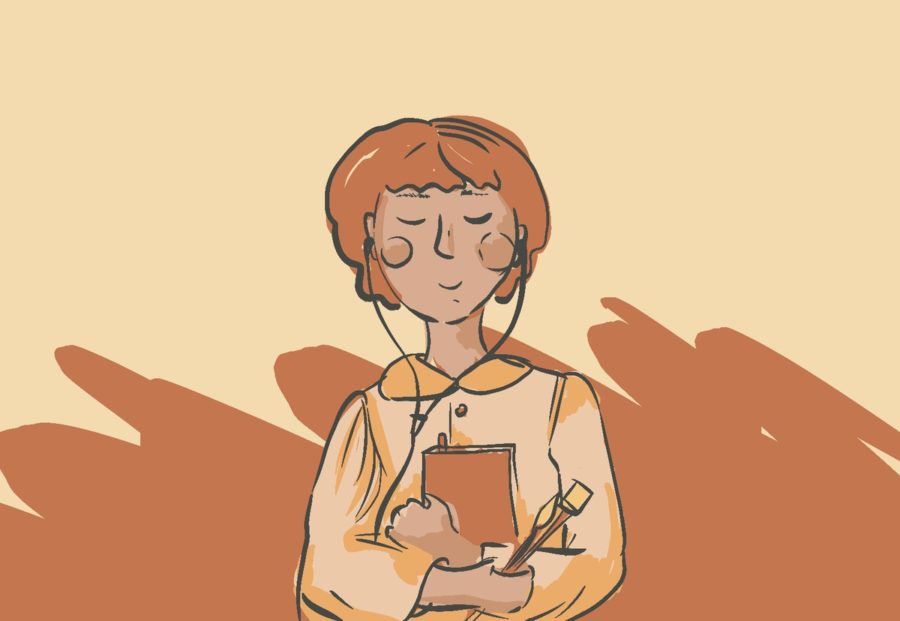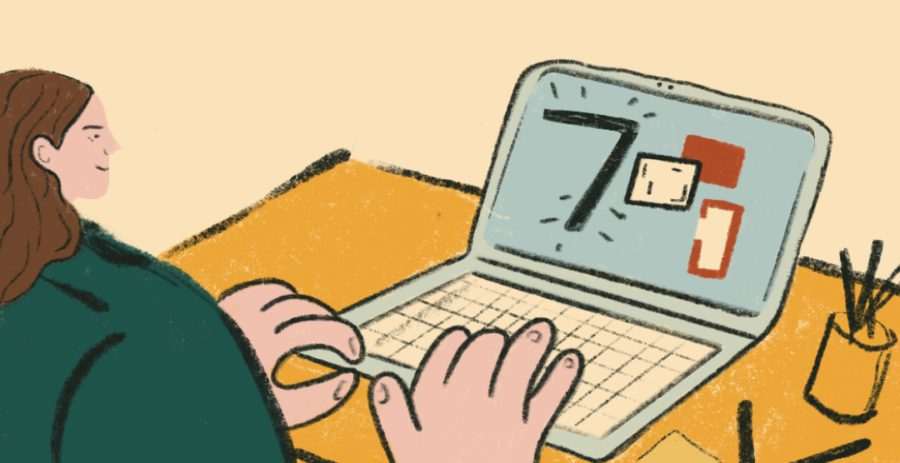Illustration by Elliot Burr
The big question for most artists right now is pretty much the same: Will art survive COVID-19? If it does, how will it do so and what will that look like? Will we ever be able to attend normal performances, exhibitions and concerts again?
Just as everyone is adapting to the “new normal” imposed by the pandemic so must artists and consumers of art. In this challenging time for the arts, we all need to do our part to support the creative platforms we love so that they have a fighting chance at standing the test of time.
Our Current Situation
Art will never die. It is a product of our human need for self-expression and creativity, and we will never lose that drive. We need not worry about art disappearing completely. Art has survived major disasters before: wars, depressions and even pandemics. In the end, we as a society need the creative and emotional outlet that art provides and will always find some way to incorporate it into our lives.
That being said, the pandemic has greatly affected arts industries and access to the arts. Dance companies closed as performances in packed theaters became impossible. Musicians stopped giving concerts and cancelled tours. Broadway and the Metropolitan Opera preemptively cancelled all performances for the 2020-21 season. Museums and galleries closed, art teachers could no longer teach in person classes and authors and poets cancelled book tours. Even now, many of these activities are on hold indefinitely.
For professional artists, this means many were laid off or took a break to work a different job in order to support themselves financially while the industry stalls. For audiences, the pandemic cuts access to the arts since people can no longer head to the theater on the weekend or go see a concert for a night out. Even if companies were able to open and restart performances, would audiences feel safe attending events? The situation is complicated and likely will be for years to come.
To Artists
Are you doing everything you can to ensure that your art survives, and even flourishes, after COVID-19?
We must push ourselves to be innovative in this challenging time and use our unusual situation for reflection and growth. For performing artists, although many of us cannot be live onstage for the foreseeable future, we can use this time to refine our craft and prepare for when we can be back on stage. It is the same for other types of artists who may not be able to be in an art studio or display their work at exhibitions right now; the best we can do is to be present, work on improving our abilities and actively prepare for the future.
While traditional methods for displaying art are out of the question, we have to think outside the box for new ways to spread it. At the moment, virtual performances via live streams or prerecorded videos seem to be the new normal for dance companies, theaters and musicians. A couple of positives about virtual events are that many of them are free to attend and audience members can attend from anywhere, making them a safe alternative to live performances that may even be more convenient for some. However, virtual events do not have the same effect as in-person performances, because they lack an essential component: a live interaction between the artist and the audience. The delivery method may not be ideal, but why not make the most of it? There are many opportunities now with technology, and creativity is the way to go. Some artists even decided to take their craft outdoors, with dance companies, musicians and comedians giving socially distanced performances at parks, drive-in movie theaters and outdoor stages. We could very well be the generation to usher in a new era of art. We might not know exactly what that looks like yet, but we have the chance to define it as we explore new possibilities.
Burnout is a very real challenge worsened by the pandemic. Training so hard for a performance and losing that chance at the last second took a toll on many this spring when the pandemic first hit. Now that it has already been over half a year and most art activities are still postponed indefinitely, progress and motivation tend to feel somewhat stagnant. I struggled with burnout, and I know many others who face the same issue. Burnout manifests in different ways for different people, but for me, it leads to constant mental and physical exhaustion, lack of motivation, and difficulty concentrating.
If you are struggling with burnout as an artist, try to reflect on what drew you to art in the first place and think about the aspects of your craft that bring you joy. This may also be a time to just take a step back and breathe. Be gentle with yourself. In the midst of everything seemingly going wrong, try to appreciate the things that are going right, the things in your life that make you happy. Then, bring that positive outlook to your craft and allow yourself to grow as a result.
To Consumers of Art
What are you doing to help your favorite art survive COVID-19?
With everything going on, it is easy to push art to the back burner. Out of sight, out of mind, right? Well, if you are someone who enjoys art, then you may want to rethink that approach. The issue is, if we do not support artists now, they will not be able to bring us the art that we rely on.
What can you do to help? You can start by attending virtual concerts, performances and exhibitions. Keep up with your favorite artists on social media and continue to support them by listening to their music, watching their dances, reading their books, etc. If you are able, donate to arts organizations, whether it be to dance or theater companies, an actors fund, an art school or designers, writers or musicians. This New York Times article explains the gravity of the current situation and provides a list of places to donate. Spread awareness about the difficult situation in the arts. Any contribution you can make will help artists who may be struggling, and in turn, it will help them provide you with more of the art you love.
Final Words
Someday, performances, exhibitions and tours will return, and when that happens, art will be reimagined and reinvigorated. It will return even stronger than before, because we will have a fuller appreciation for the things we used to take for granted. Until then, the best we can do is to continue to create and support art in whatever ways are possible right now. As a community of artists and art lovers, we can and will grow from COVID-19.







